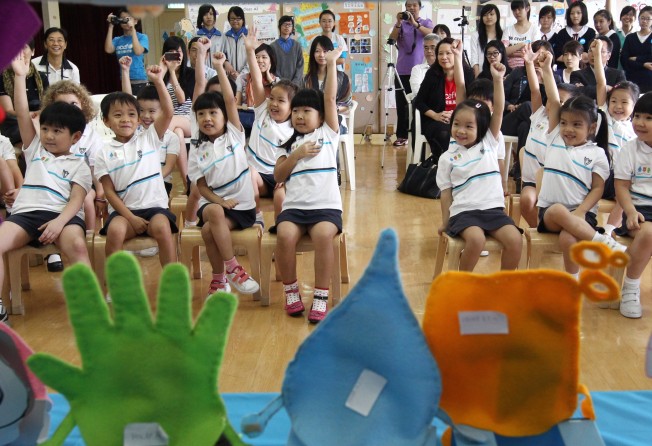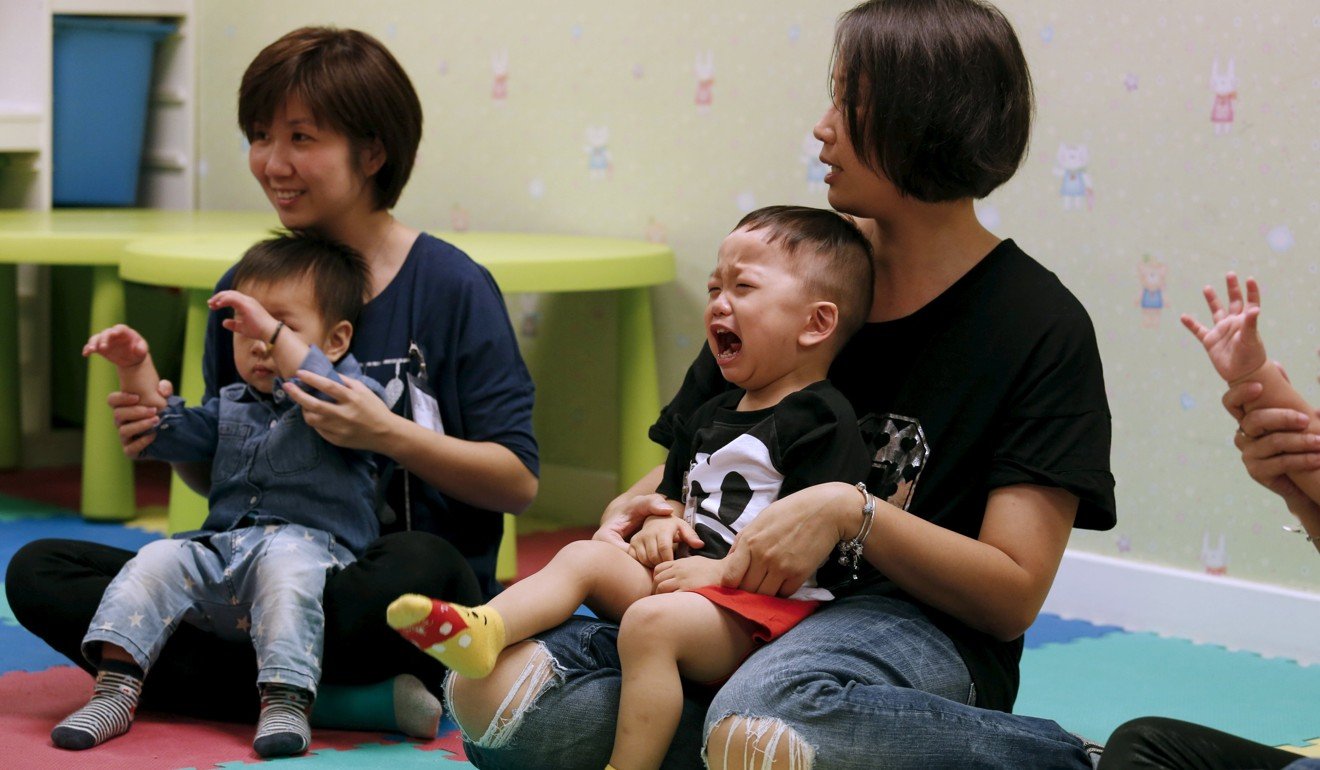Drill or chill: How to prepare for a kindergarten interview
The interview’s objective is to show the school how you nurture your child, instead of parading your awards

Kindergarten interview preparation kits can range from experts’ workshops to résumé-writing tutorials, but many parents debate whether they should coach their young for such meetings. So admissions expert Leung Wing-lok tells parents how they can help their child find the most suitable school and not push them too hard.
Parent: Are résumés necessary?
Leung: Honestly speaking, many kindergartens do not accept résumés any more. They’re “nice to have”, but unnecessary, so to speak. Remember, the main objective of the interview is to show the school how you nurture your child, instead of parading your awards. An important point generally missed is whether schools truly seek multi-skilled children juggling several hobby classes. Not necessarily. While there are exceptions, most schools wish to recruit kids with a balanced lifestyle who are not forced into a very busy schedule. Also, nearly every child can get a slice of the cake in most of the “competitions” out there – and schools are well aware of that. This is why – contrary to the number of trophies – schools are more interested in where the child’s passions lie.
P: What level of maths or language is expected of my child?
L: The ability to identify colours and shapes, as well as counting and building simple structures with objects are common parameters that candidates are judged on. Mathematical skills like addition and subtraction, on the other hand, are not required at this level. Simple English is sometimes tested too, in terms of cognition and ability of expression.
P: Is there any difference between the interviews in local and international kindergartens?
L: International kindergartens usually have longer interview sessions, and allocate more time to group play sections; whereas local kindergartens are shorter, and usually only consist of parent-accompanied chats and easy tasks.
P: How can I prepare myself for the interview?
L: While separate interview sessions with parents are unusual, the presence of parents is usually required during chats with children. It is common to see parents who cannot resist the urge to answer for the child, but bear in mind untruthful, recited answers are easily spotted. For instance, when asked about family weekend pastimes, some parents would make up more “children-friendly” locations like the park or the library to impress teachers. While it is difficult and wrong to force children that young to be your “accomplice”, telltale signs like a dubious look on the child’s face will quickly give away the truth.
Schools usually concentrate on two things in parents: their relationship with the child, and their relationship as a couple.
P: What are some of the worst scenarios in interviews?
L: Schools usually concentrate on two things in parents: their relationship with the child, and their relationship as a couple.
The former focuses on whether the child shows over-reliance on the parents, with symptoms such as glancing at them when answering questions.
As for the latter, teachers have reflected seeing a worrying growth of couples blaming each other during interviews. Recently a headmaster shared an episode where a parent was giving the other half a hard time about his outfit, all the way to the classroom door. In other cases, something as trivial as late bedtime, a common bad habit among kids, could trigger accusations between spouses. Contradictory views and impatient attitudes would further highlight the discrepancy between how a couple educates their child.
In the end, the relationship between parents would inevitably affect the child’s emotions.
P: How can my child stand out in the group play session?
L: Here are a few reminders for group interviews:
• It’s often the display of empathy that makes a child stand out from his or her peers. Try looking out for other kids who show difficulties in completing tasks. This is hard to “fake” and greatly counts on the upbringing of the child.
• At home, break yourself away from the habit of relying on e-pacifiers like smartphones, for instance as “attention sponges” for children to sit still at meals, so children will learn how to socialise with human beings.
• Independence is another indicator schools look out for. From something as simple as tucking in the top or lacing up shoes on their own, to tidying up toys after play, these actions lend a window to how the child behaves at home.
P: What to do if my child can’t answer a question?
L: Lots of times the child cannot seem to find the “right” answer to the interview questions. In fact, they are not expected to. For instance, children could be put on the spot when they’re unsuccessful in picking a favourite colour out of the given options. To prepare for this kind of situation, parents can encourage them to express their true feelings, or try to explain to others why they don’t know how to answer. Teach not only in words but in deeds. Children will follow how their parents interact with others. Organise more activities with other kids of the same age to enhance their social skills. Children can learn how to tackle disputes and how to behave in times of clashes.

P: Interview workshops: yes or no?
L: If joining these workshops give children more confidence, then by all means go for it. After all, not all children grow up alongside kids of the same age, so engaging them in a group learning setting would make up for the absent interaction.
P: How many kindergartens should I apply to without exhausting my child?
L: Theoretically, you can apply to every kindergarten, but here are a few things you should take into consideration:
- Do you want to send your child to a school near home?
- Do you have a target primary school in mind? If so, look for affiliated kindergartens and research the allocations of the outgoing graduates.
- Are you targeting “sought-after” kindergartens? Watch out, their interview periods often clash.
Therefore, aim at applying for six to seven schools; after taking all the factors in account, you’ll probably be left with around five to six schools for interview.
P: How should I console my child if the interview didn’t work out?
L: Parents from the very beginning should tell the children what the interview is about. Picture the interview as a chat or a simple meet-up with new friends. An essential thing is to let them know that failing to get into this particular school does not mean they cannot go to school at all. Do not pressurise them into thinking that they’ve done something wrong.
I once heard a case where an alumnus of an elite kindergarten told his child: “It’s none other than your problem if you can’t get in”. This is what I would call a definite no-no.
Dress for success
- Three key words: clean, tidy and age-appropriate.
- There’s no need to gussy up your boy in a mini tuxedo, while princess dresses might not be the best fashion option for girls.
- Avoid wearing brand new clothes as they might be itching and uncomfortable for first-time wearers.